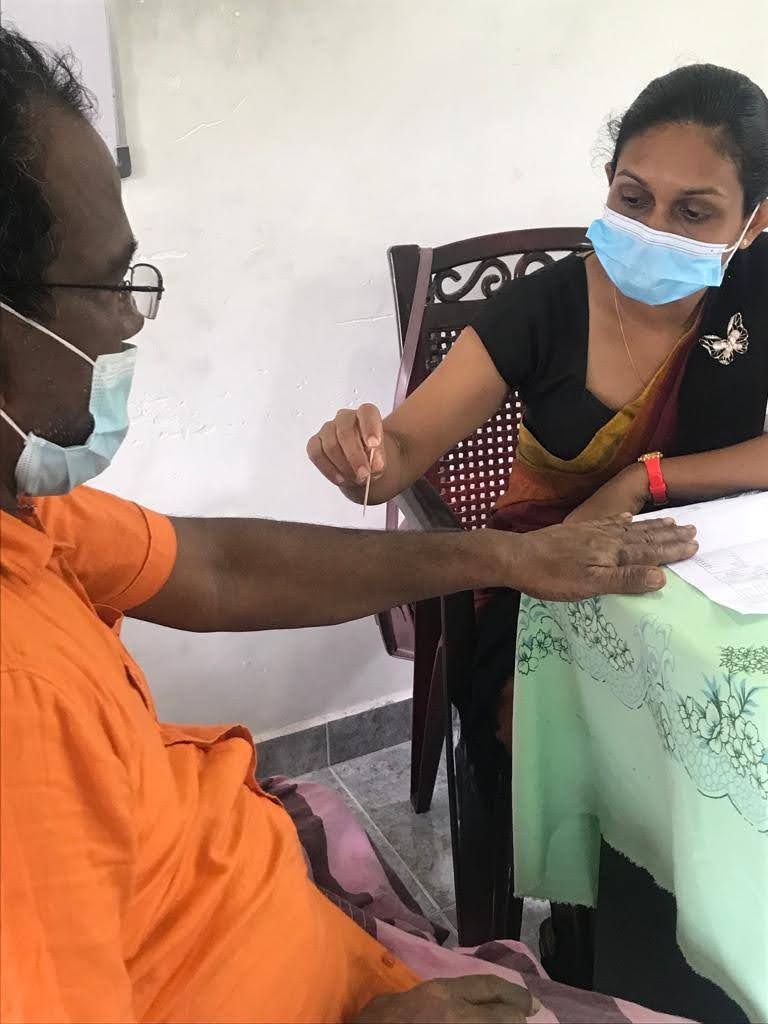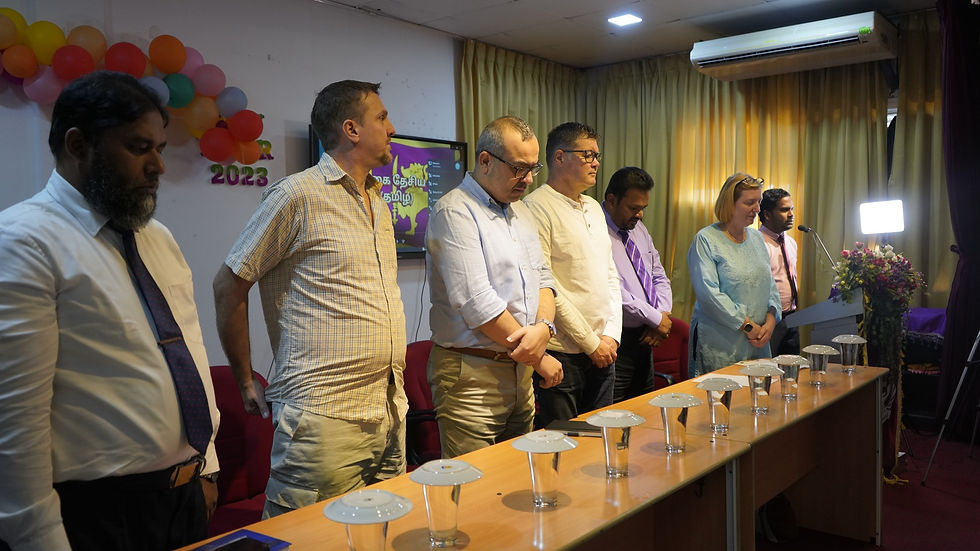The ADT’s Interventions toward Zero Leprosy in Sri Lanka
- Aug 26, 2022
- 2 min read
Updated: Sep 5, 2022

The ADT is committed to promoting good health and well-being across communities most vulnerable to infectious diseases in Sri Lanka. We believe in communities living to their fullest potential, especially in underprivileged regions.
Since 2016, the ADT has mobilised interfaith leaders across the nation to become catalysts in leprosy control by equipping them to reach out to their communities and create awareness in fighting the stigma against leprosy. These interfaith leaders are essential in organising leprosy control programmes and meetings across the island. A team comprising steering committee members, interfaith leaders, and Public Health Inspectors (PHIs) play a significant role in extending leprosy programmes across the island.
This initiative is essential to the National Strategic Plan of the Ministry of Health, Nutrition, and Indigenous Medicine. The goal is to encourage and motivate early detection of leprosy and support leprosy to eliminate targets mentioned in the national strategy of the Anti-Leprosy Campaign Sri Lanka (ALC Sri Lanka). The ADT implemented 18 awareness programmes in 2020 and reached 1,532 people to support the district-level government leprosy control plan. This was implemented under the supervision of each district’s PHIs allocated for leprosy prevention.
In 2021, there was a continued effort to create awareness and reach the ADT's goal of Zero Leprosy in Sri Lanka. The ADT conducted 21 unique awareness and screening programmes across ten districts and 08 interfaith district planning meetings. The awareness and screening programmes reached 1,068 people, out of which ten people were discovered with leprosy. The ADT shared leprosy awareness material at the numerous programmes targeting a wide range of people from the Mannar, Trincomalee, Nuwara Eliya, Colombo, Ratnapura, Kilinochchi, Batticaloa, Galle, Kalutara, Matara and Polonnaruwa districts. The interfaith district planning meetings were held in the Nuwara Eliya, Colombo, Kilinochchi, Batticaloa, Galle, Kalutara and Polonnaruwa districts. Both interfaith and community leaders participated in these meetings.

During the COVID-19 lockdown, the close physical conditions prevalent in households with poor living conditions increased the risk of skin-related diseases. The ADT implemented three leprosy awareness programmes via Zoom for Colombo, Galle, and Matara participants. As an interfaith approach to zero leprosy in districts, the district leprosy PHI conducted an online awareness programme with 227 interfaith leaders in attendance.
A programme was conducted in June 2022 in Kahatowita, Gampaha. The ADT provided awareness on leprosy with interfaith leaders and the district's PHI. After the awareness session, the ADT conducted a screening programme for the participants wherein various skin conditions were discovered. The programme was conducted for the community, with many families joining.
The ADT, interfaith leaders, and PHIs conducted several awareness programmes on leprosy and skin screenings. The objective was to identify potential leprosy patients. The interfaith leaders and PHIs shared information on leprosy to reduce the stigma attached to leprosy, and volunteer doctors conducted screening tests to determine leprosy and other skin conditions. The screening yielded positive results as those identified with the disease were referred to the nearest hospital leprosy units for follow-up treatments.
In Batticaloa, a house-to-house screening approach was followed to reach a larger group of people. A total of 885 persons benefited from this programme which was held amongst communities in the areas such as Gampaha, Trincomalee, Bloemendhal Colombo, Ratnapura, Batticaloa and Kilinochchi.
Black%203%20-%20website%20adjustment%201.png)



Comments